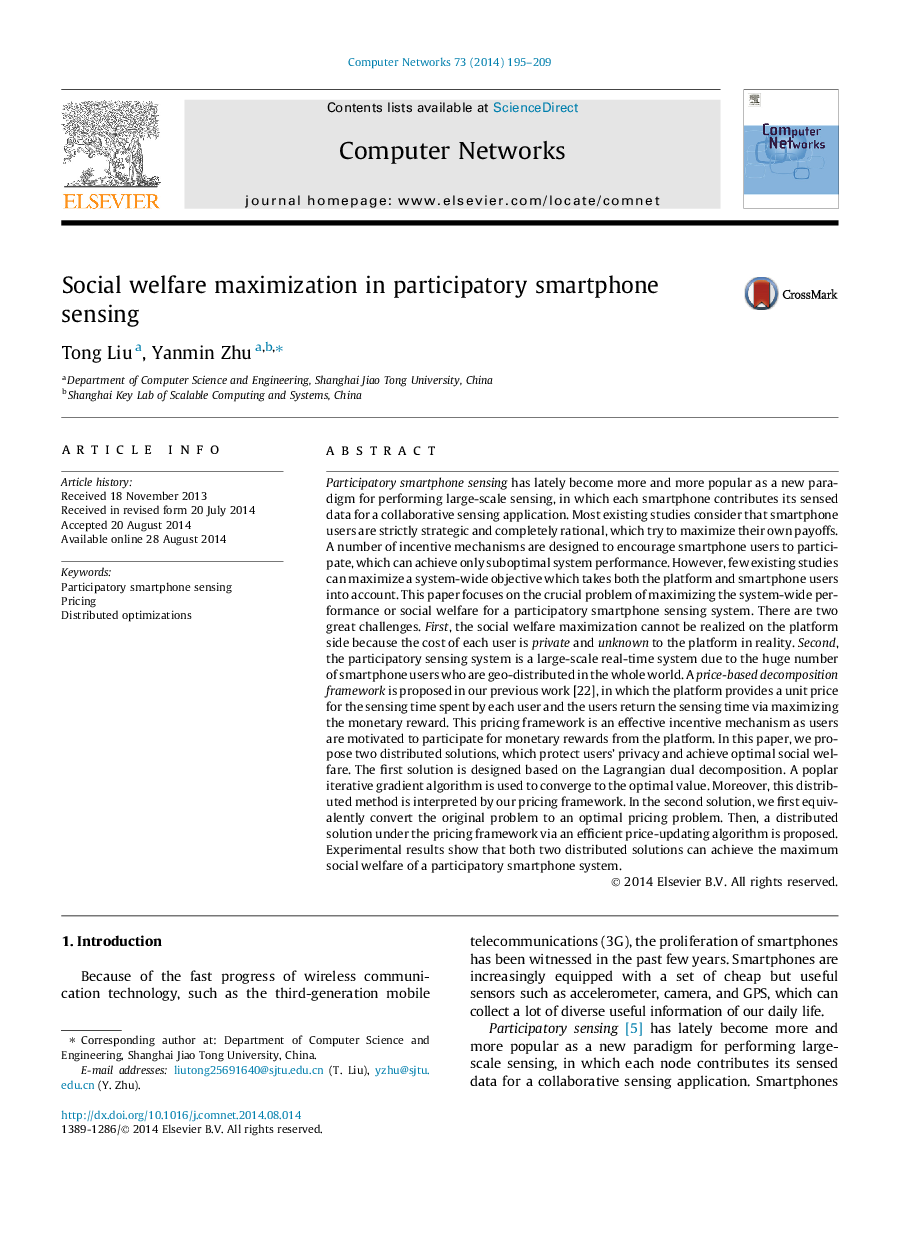| کد مقاله | کد نشریه | سال انتشار | مقاله انگلیسی | نسخه تمام متن |
|---|---|---|---|---|
| 452890 | 694643 | 2014 | 15 صفحه PDF | دانلود رایگان |
Participatory smartphone sensing has lately become more and more popular as a new paradigm for performing large-scale sensing, in which each smartphone contributes its sensed data for a collaborative sensing application. Most existing studies consider that smartphone users are strictly strategic and completely rational, which try to maximize their own payoffs. A number of incentive mechanisms are designed to encourage smartphone users to participate, which can achieve only suboptimal system performance. However, few existing studies can maximize a system-wide objective which takes both the platform and smartphone users into account. This paper focuses on the crucial problem of maximizing the system-wide performance or social welfare for a participatory smartphone sensing system. There are two great challenges. First, the social welfare maximization cannot be realized on the platform side because the cost of each user is private and unknown to the platform in reality. Second, the participatory sensing system is a large-scale real-time system due to the huge number of smartphone users who are geo-distributed in the whole world. A price-based decomposition framework is proposed in our previous work (Liu and Zhu, 2013), in which the platform provides a unit price for the sensing time spent by each user and the users return the sensing time via maximizing the monetary reward. This pricing framework is an effective incentive mechanism as users are motivated to participate for monetary rewards from the platform. In this paper, we propose two distributed solutions, which protect users’ privacy and achieve optimal social welfare. The first solution is designed based on the Lagrangian dual decomposition. A poplar iterative gradient algorithm is used to converge to the optimal value. Moreover, this distributed method is interpreted by our pricing framework. In the second solution, we first equivalently convert the original problem to an optimal pricing problem. Then, a distributed solution under the pricing framework via an efficient price-updating algorithm is proposed. Experimental results show that both two distributed solutions can achieve the maximum social welfare of a participatory smartphone system.
Journal: Computer Networks - Volume 73, 14 November 2014, Pages 195–209
